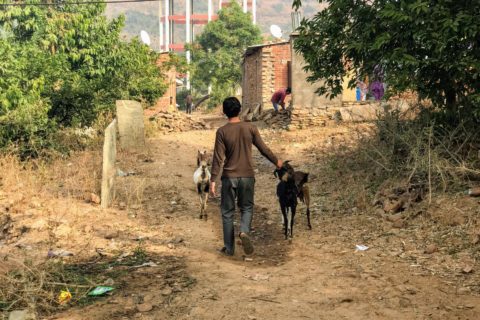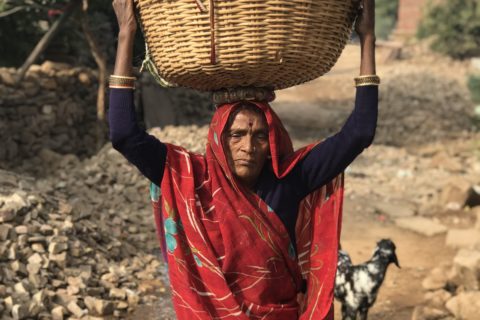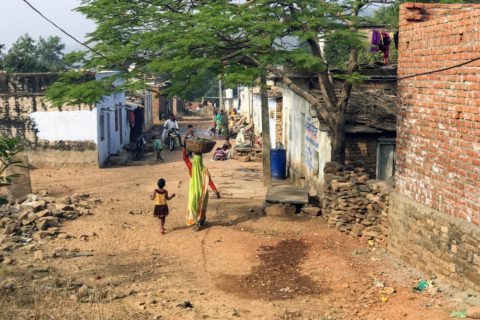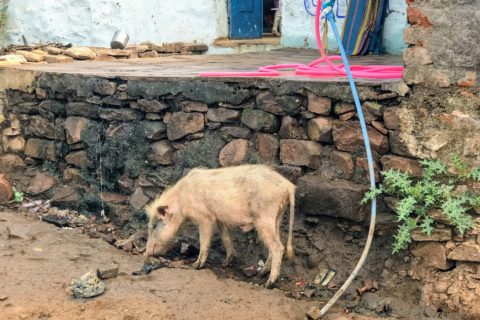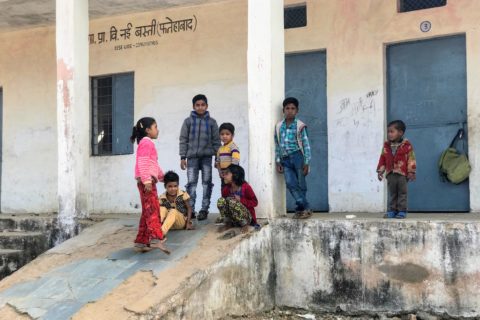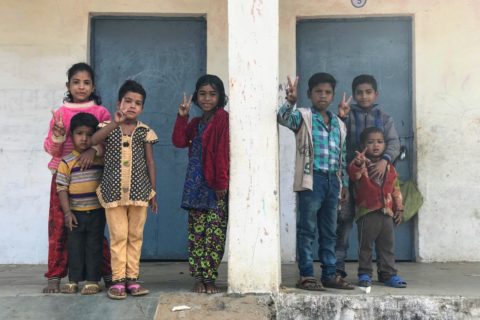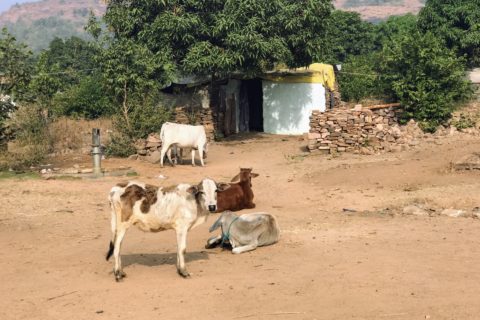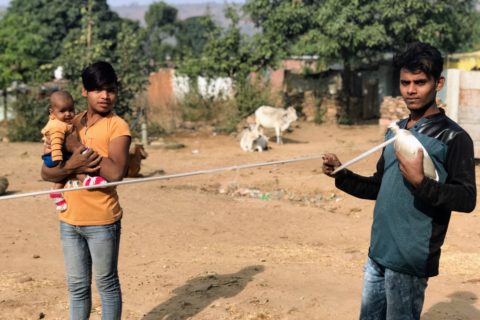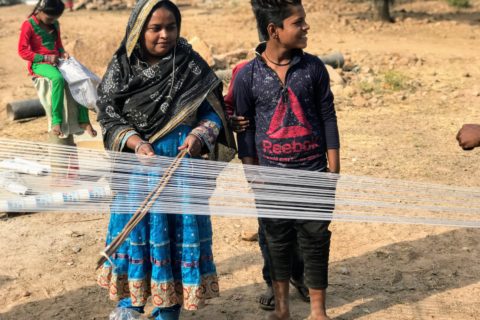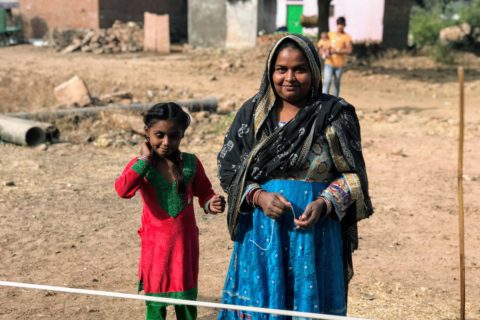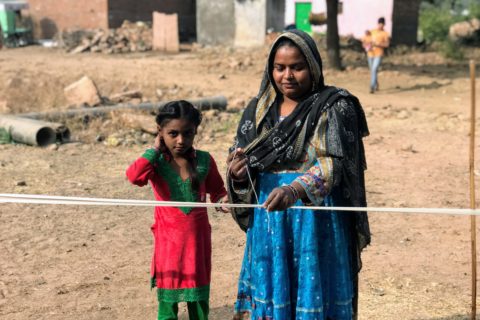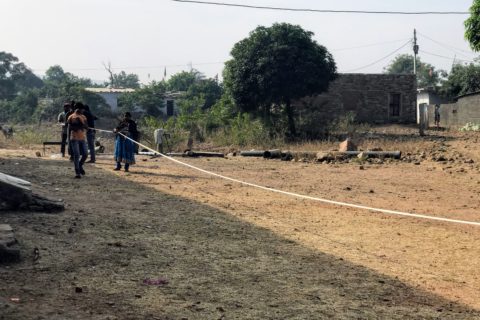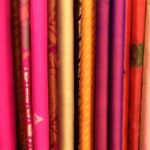I was following the goats really. That is how it began. We were at a small village on the outskirts of Chanderi. Yarn was being stretched into a warp. There were goats all around. I started following a large group of about 50 goats. That’s how it started. I saw familiar, yet wondrous sights, lost to an India that used to be and perhaps ever was. A singing lad leading a flock to a hillside.
Chanderi has many pigs who sniff the dirt. There are beautiful desi cows belonging to native Madhya Pradesh breeds like Jalgaon, Hariana, Deoni, white and brown cows with raised humps. There were buffalo: black and broad. Nature abounds in this arid land.
As I walked through the tiny dirt road, I came across a woman selling fresh greens. Clad in a red sari, with a wicker basket on her head, she called out her wares and stopped by the streets. Children were playing in a shed and when I gave them a thumbs up sign, they replied with a V-shaped “peace” sign.
And then I stumbled into a weaving community, right there in the middle of the village. It was a lovely languorous exercise, much like the saree itself. An open courtyard in the middle of the village, a tight-knit group of people working under the mellow sun, chatting and laughing, surrounded by tinkling cowbells and the cries of birds.
The thread, they said was long enough to make 15 sarees. We chatted a bit. They were working for the master weaver, Ansari. A pretty woman, her daughter and a man in a lungi. All together under the warm morning sun. In the shadow of the hills all around.
Trees were dotted all around: mango, guava, kirni, ber, akola, chirola and neem. Kids wandered under the tree, free and easy. The day stretched before them into the horizon, like the warp thread itself.
“I have learned that each and every piece of cloth embodies the spirit, skill, and personal history of an individual weaver. . . . It ties together with an endless thread the emotional life of my people.”
―


